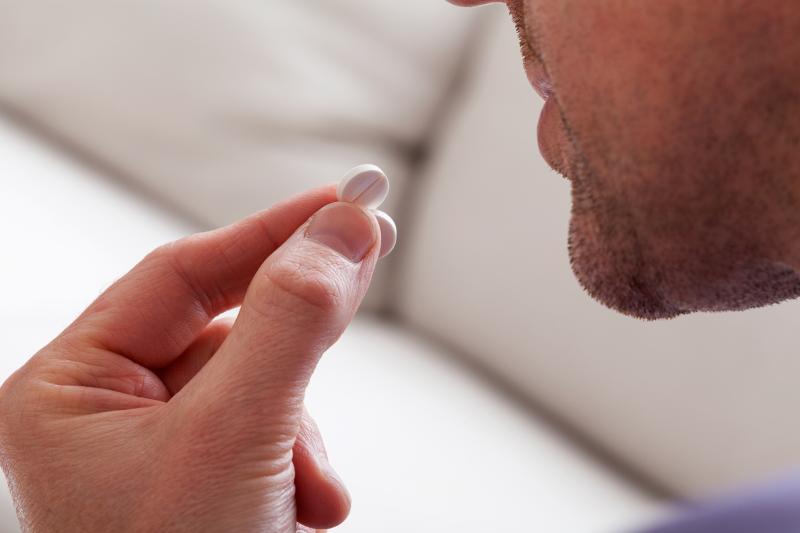Famotidine eyed as candidate drug for COVID-19





Scientists are looking to the possibility of repurposing a common heartburn remedy, famotidine, to combat COVID-19, with a small case series study showing that the use of the drug is safe and leads to symptomatic improvements in infected patients.
“Famotidine is a histamine-2 receptor antagonist [H2RA], widely available over the counter at low cost, does not interact with other medications, and has been safely used for suppression of gastric acid production over a wide range of oral doses from 20 mg once daily to 160 mg four times daily,” according to the investigators. [https://www.accessdata.fda.gov/drugsatfda_docs/label/2018/019462s039lbl.pdf]
In computer simulations, the H2RA drug was characterized as a potential inhibitor of the coronavirus 3-chymotrypsin-like protease. Indeed, in a propensity score matched retrospective cohort study, COVID-19 patients who were incidentally taking famotidine prior to or at hospital admission had a significantly lower risk of death or intubation (adjusted hazard ratio [HR], 0.43, 95 percent confidence interval [CI], 0.21–0.88). [Acta Pharm Sin B 2020 doi:doi:10.1016/j.apsb.2020.02.008; Gastroenterol 2020;doi:10.1053/j.gastro.2020.05.053]
“Our findings support the rigorous evaluation of famotidine as a potential therapy and of the use of symptom tracking for nonhospitalized patients with COVID-19,” the investigators said.
The study included six male and four female consecutively enrolled patients—nine from the US and one from Sweden—whose age ranged from 23 to 71 years. These patients were from several racial/ethnic groups, including white, black, Hispanic, black-Hispanic, Asian, and South Asian.
All patients had begun self-medication with the H2RA drug at the onset of symptoms. The most commonly used dose was 80 mg three times daily (n=6), with a median duration of use of 11 days. The time period between onset of symptoms and treatment initiation varied between 2 days and 26 days.
Famotidine was well tolerated, and there were no adverse events documented in seven patients. Two patients reported dizziness, while another experienced gastrointestinal symptoms and temporary forgetfulness. All of the events were mild, and none of the patients required later admission to the hospital. [Gut 2020;doi:10.1136/gutjnl-2020-321852]
“Our case series suggests, but does not establish, a benefit from famotidine treatment in outpatients with COVID-19… Mechanistically, [the drug] could have a viral target, for example, one of the viral proteases, or a host target, resulting, for example, in modulation of the immunological response to the virus,” the investigators pointed out.
They believed that the H2RA drug may be safely evaluated in a trial or clinical setting where patients self-administer the medication, given that famotidine has only minimal inhibitory effect on the hepatic cytochrome p450 system and low risk of clinically significant alterations in oxidative drug metabolism. [Clin Ther 1996;18:36-54]
“Clinically, we unreservedly share the opinion that well designed and informative studies of efficacy are required to evaluate candidate medications for COVID-19 as for other diseases. A randomized phase III trial testing the efficacy of high dose intravenous famotidine three times daily in addition to hydroxychloroquine in hospitalized patients with COVID-19 has recently commenced,” they said. [N Engl J Med 2020;doi:10.1056/NEJMp2009457]